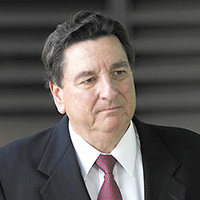Matamoras Criminal Lawyer, Pennsylvania
Sponsored Law Firm
-
 x
x

Click For More Info:
-
Law Office of Mark S. Guralnick
55 Madison Avenue 4th Floor Morristown, NJ 07960» view mapCriminal Defense Law Dedicated. Fearless. Successful.
Mark S. Guralnick and his legal team have helped clients throughout the USA and across the world by applying unparalleled dedication and hard work to each case.
800-399-8371
Nicholas R. Sabatine
✓ VERIFIEDAccident & Injury, Divorce & Family Law, Estate, Criminal, Business
When you've been injured in an accident that was caused by another's negligence or carelessness, you want to do everything possible to make sure your ... (more)
Laurence C Kress
Federal Appellate Practice, Criminal, Litigation
Status: In Good Standing Licensed: 26 Years
Laurence C Kress
Litigation, Federal Appellate Practice, Criminal
Status: In Good Standing Licensed: 26 Years
David W. Skutnik
Bankruptcy, Criminal, Real Estate, Deportation
Status: In Good Standing Licensed: 39 Years
James Alan Swetz
Commercial Real Estate, Divorce & Family Law, Criminal, Civil Rights
Status: In Good Standing
James Christopher Swetz
Litigation, Immigration, White Collar Crime, Criminal, Civil & Human Rights
Status: In Good Standing
Brian Christopher Jordan
Traffic, Federal Claims Court, White Collar Crime, DUI-DWI, Criminal
Status: In Good Standing Licensed: 17 Years
 Mark Guralnick Morristown, NJ
Mark Guralnick Morristown, NJ AboutLaw Office of Mark S. Guralnick
AboutLaw Office of Mark S. Guralnick Practice AreasExpertise
Practice AreasExpertise

